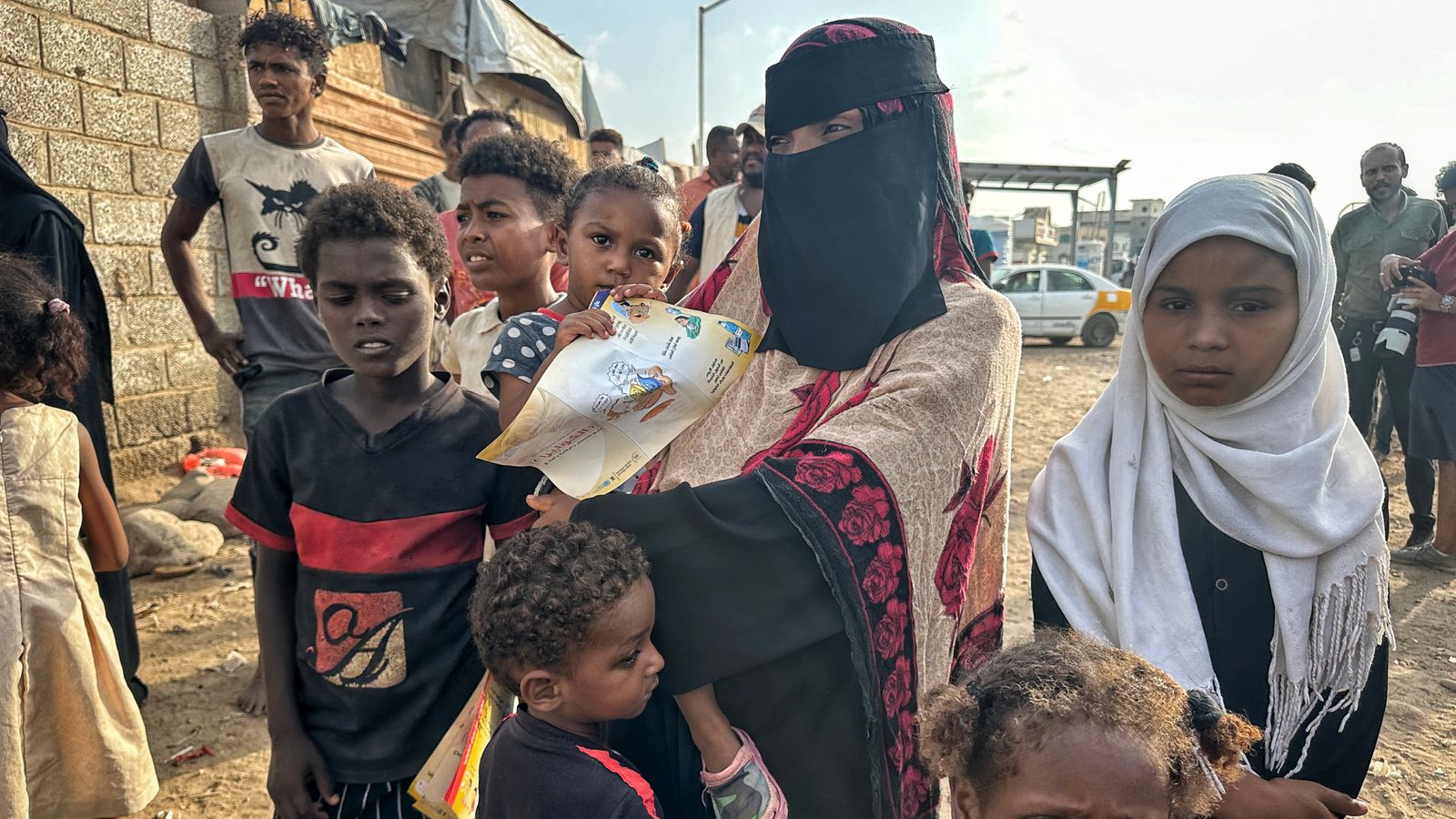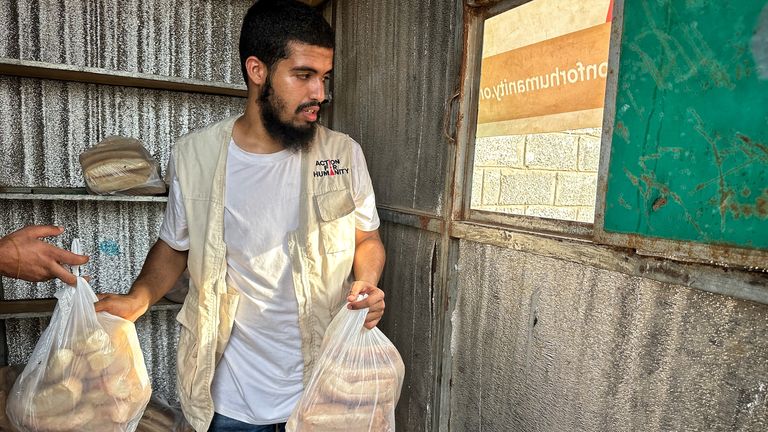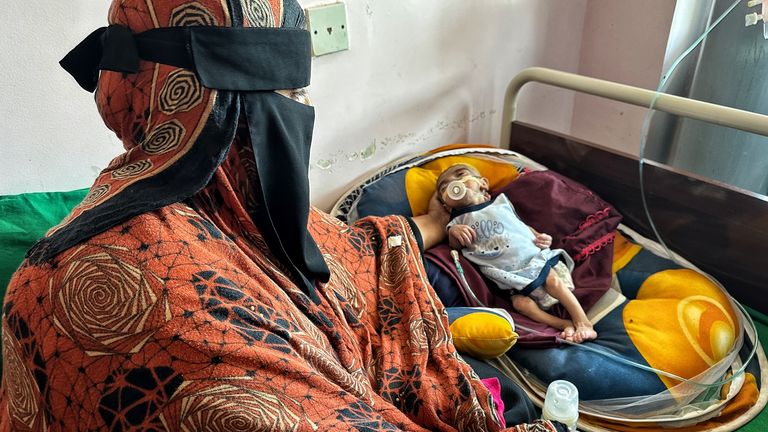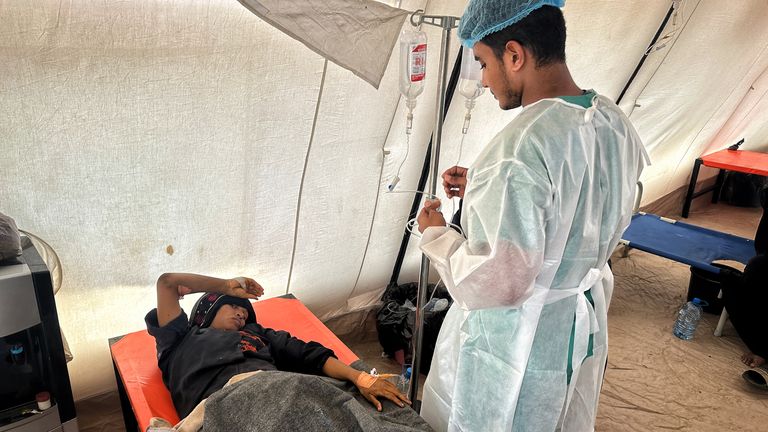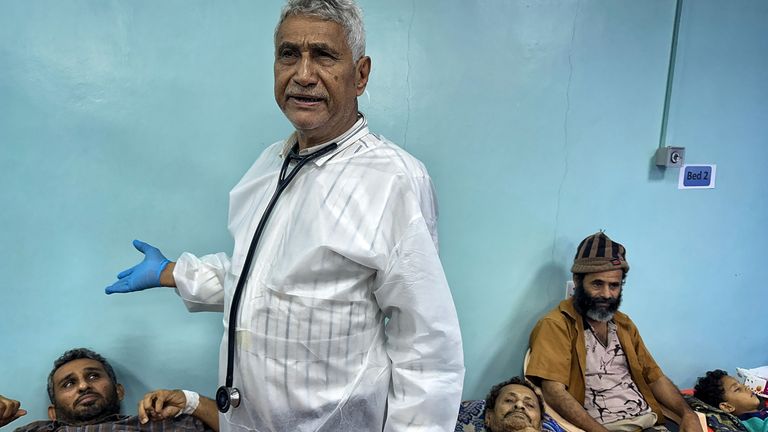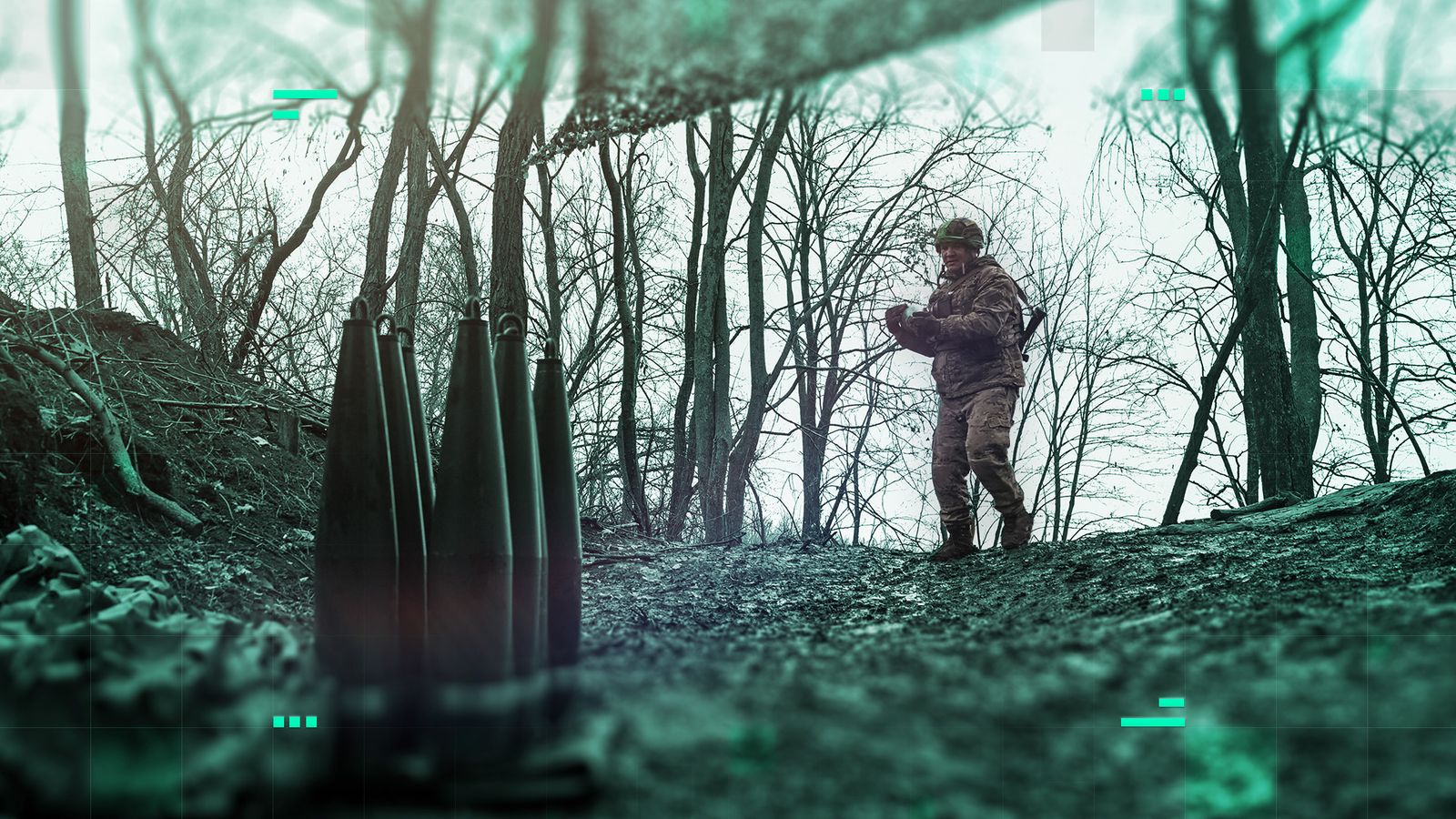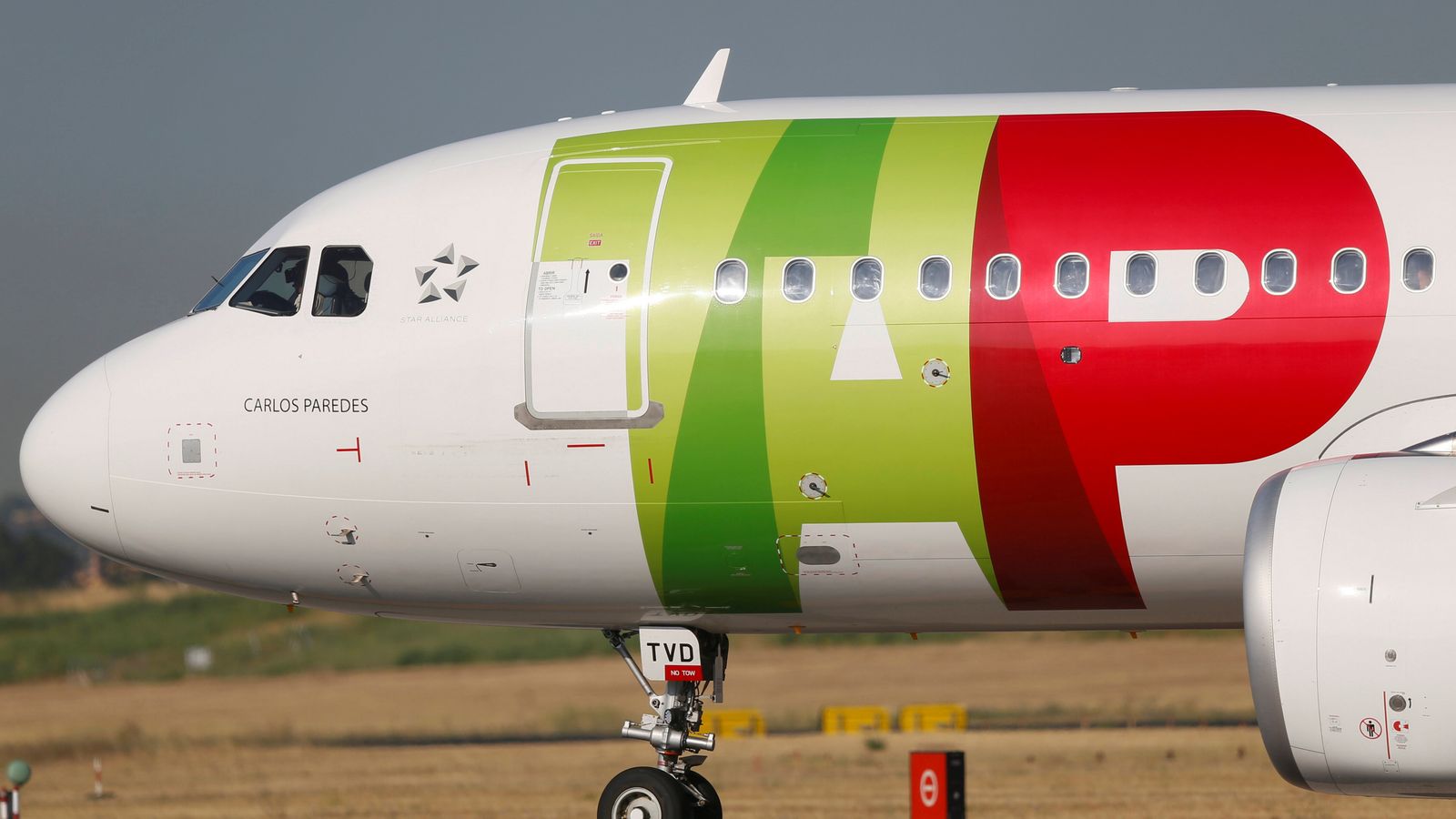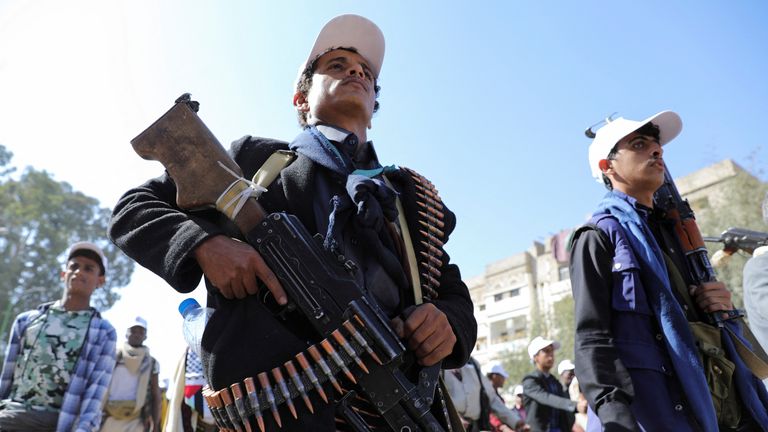
The grinding misery in Yemen just got worse. Yet while their own suffering goes on in virtual silence, they still protest in towns across Yemen in their hundreds of thousands about the Israeli bombing in Gaza.
Yemen, one of the poorest countries in the world, has found itself thrust into the centre of the war on Gaza. As if that wasn’t unlikely enough, the Houthi militants who control the bulk of the Yemeni population through a combination of force, fear and extensive outside help from Iran, are now being viewed by many as heroes.
The Houthi actions in wreaking havoc on global shipping routes in the Red Sea and the Gulf of Aden, has seen them surge in popularity at home and gain unexpected influence and cachet abroad.
So, when I interviewed one of the group’s inner circle, the cousin of the Houthi leader, Mohammed al-Houthi, in Yemen this week, he was all smiles.
“The whole world is with the Houthis,” he told me from his base in the capital, Sanaa. “They see we are the only ones taking on Israel and defending our brothers and sisters in Palestine.”
Certainly, the Houthi attacks on shipping routes off the coast of Yemen have massively refocussed a lot of the political and worldwide business attention – and right now, it is the heavily-armed, Iranian-backed militants who appear to have the upper-hand.
The UN envoy for Yemen, Hans Grundberg has already warned the situation could propel Yemen back into a fresh cycle of war.
He told the UN Security Council last month (15 March): “What happens regionally impacts Yemen and what happens in Yemen can impact the region.”
And the global attention the Houthis attacks have garnered appears to have galvanised the militants even more – whilst the international community seems powerless to halt them.
American and British military attacks on Houthi bases in the north have failed to stop the militants’ assault on shipping. The longer this continues, the more challenging the talks on a lasting peace in the country become, with Mr Grundberg pointing out to the UN: “With more interests at play, the parties to the conflict in Yemen are more likely to shift calculations and alter their negotiation agendas.”
And the Houthi leaders appear all too aware of this with Mohammed al-Houthi telling Sky News: “It’s not the same Yemen as in 2015. We have the weapons and the capability and we have the targets and we have the capacity,” he said in reference apparently to the funds and ammunition they have built up with Iranian help.
He went onto vow to continue the assaults on shipping: “We also have our own surprises if they don’t stop the blockage against Gaza and also the genocide against Gaza.”
The strategically important Yemen has been split by a civil war which began nearly 10 years ago. Houthi militants backed by Iran, seized control of the north of the country as well as the capital in 2015. But the south and Aden are run by an internationally recognised authority which has the support of a Saudi-led coalition which includes America, Britain and the UAE.
The country is a patchwork of armed checkpoints run by the opposing factions as well as other competing fighting groups – all making travel and trade, dangerous and highly challenging. The country and its citizens have suffered massively from this protracted war with both sides accused of extensive human rights abuses and war crimes.
But a year ago, there appeared to be a breakthrough with Iran and Saudi Arabia, the two rival regional powers, agreeing to work towards a lasting peace deal. That was until 7 October – the Hamas attack inside Israel and the Israeli bombardment of Gaza ever since.
Most Yemenis are already predisposed to supporting the rights of the Palestinians but this has reached new levels in the face of the Israeli military operation inside Gaza, now in its sixth month.
The repeated missile and drone attacks by the Houthis militants since November have forced international cargo ships to be re-routed. The longer, more costly journey avoiding the Red Sea and going around the Cape of Good Hope has sent the price of goods up everywhere. The outcome is the poorest countries with the poorest populations have been most severely impacted. And that includes Yemen.
We were at a bread distribution site in Aden, set up by the British charity, Action for Humanity, and saw the lines of hungry children and families queuing up for the free food.
For many, an already challenging situation has just got more so, according to the charity’s Dr Shameela Islam-Zulfiqar.
“Even more people are food insecure, even more are water insecure,” she told us. “And it’s going to take more than INGOs (charities) to plug the gaps of what’s happening here.”
A ramshackle shanty town has grown up over the past few years next door to the distribution point. It’s a hotchpotch of timber, corrugated sheets, discarded fabric and torn tents hammered together to make shelters for hundreds of people displaced by old and new instability.
One of the inhabitants tells us: “The people are all suffering. They live from day to day…some begging, selling scrap or borrowing money…but it’s very difficult.”
At the Al-Sadaqah hospital in Aden, the doctors despair over the mounting numbers of starving children being brought in. Dr Mohammed Rajeh shows us into the malnutrition ward where he says he’s just admitted three more babies overnight. “We are seeing a rise in the number of those babies needing help,” he says. The problem of hunger seems to be getting worse.
Several wards we go into have sick and malnourished young ones. But one ward stands out to us. Side by side in adjacent hospital beds, there are two tiny babies, struggling to stay in this world and tended to by nursing staff who’re not at all confident they will succeed.
The babies are both painfully thin with ribs protruding; extended, bloated stomachs and crinkled extra folds of skin hanging off tiny, stick-like limbs. Both are wasting away from lack of food. Their mothers cant feed them themselves because they are hungry and malnourished themselves.
Their fathers can’t earn enough to feed the families’ adults nor the families’ children. The fight to save the babies is the toughest job Dr Rajeh has right now. “Day to day, we are seeing an increase in patients with diarrhoea and malnutrition,” he says. “And with infections and diarrhoea, we fear for them. We could lose them at any moment.”
Yemen is enduring a near economic collapse. The teetering health system is under enormous strain with more than half the country without access to clean water and now facing a fresh outbreak of cholera.
Emergency isolation tents have been set up in the grounds of Al-Sadaqah hospital to cope with the influx of cholera patients and the extra numbers expected.
“We’re seeing sick people coming from all over Yemen,” Dr Saleh Dobahi told us. He’s especially worried because that suggests to him that there are several sources of the disease around the country. “It’s caused by poor water, poverty, sewage affecting food. People are poor in Yemen,” he added. “And this cholera seems to be a stronger, different strain too. It is very worrying.”
The civil war has taken a terrible toll on Yemen, turning the country into one of the world’s worst humanitarian disasters. But the additional strain caused by the regional impact of the Gaza war could be devastating.
“We have a divided country first, and we have all these problems, like inflation,” Dr Dobahi says. “We have war… and now we have another external war…so war not just in Yemen only but outside Yemen too.
“All this has an effect on our lives and at the same time, our health…the health of the population.”
Alex Crawford reports from Yemen with cameraman Jake Britton, specialist producer Chris Cunningham, and Yemen producer Ahmed Baider

